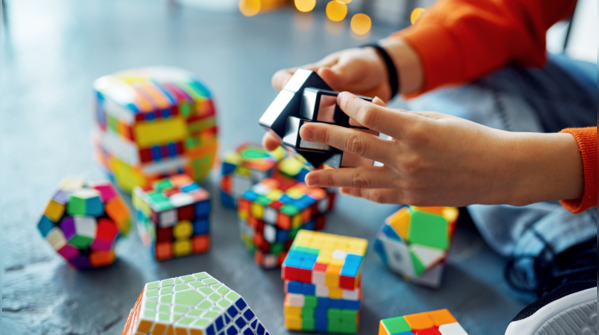In today's fast-paced world, mental acuity is just as crucial as physical fitness. While workouts for the body receive considerable attention, brain exercises often get overlooked. Just as lifting weights strengthens muscles, engaging in mental workouts sharpens focus and boosts memory. These exercises are essential for maintaining and improving cognitive functions, enhancing concentration, improving memory retention, and potentially preventing age-related cognitive decline.

The significance of meditation for both body and mind is frequently underestimated. Meditation involves centering the mind and cultivating present moment awareness. This practice strengthens the prefrontal cortex and hippocampus, key brain regions associated with attention and memory. Regular meditation can improve attention span and reduce stress, factors that contribute to better memory function.
Some studies suggest that meditation may positively influence the brain's structure and function. To incorporate meditation into your daily routine, dedicate just 10-20 minutes each day. Find a quiet space, focus on your breath or a mantra, and gently redirect your attention when your mind wanders. Beginners can also utilize guided meditation apps for support.

Games and puzzles that challenge your cognitive abilities can significantly improve memory and boost focus. Puzzles that demand problem-solving skills strengthen neural connections, enhancing cognitive flexibility. Activities like Sudoku, crossword puzzles, and memory card games are associated with improved short-term memory. These games train the brain to process and recall information more efficiently.
A 2021 study revealed that brain training games can help manage age-related cognitive decline in older adults. Set aside time each day, whether in the morning or evening, to engage in a crossword puzzle, Sudoku, or a memory card game. Online platforms and puzzle books can also provide valuable resources.

The brain thrives on novelty. Learning something new, such as a language or a musical instrument, forces the brain to process and store new information, forging new neural pathways. A 2014 study involving older adults demonstrated that acquiring a new and cognitively demanding skill, like quilting or photography, significantly boosted their memory.

Furthermore, a 2019 review found that bilingualism, the ability to speak two languages, significantly increases and strengthens connectivity between different areas of the brain. This can delay and reduce the risk of Alzheimer's disease and other forms of dementia. Consider using language training apps, enrolling in a course, or learning to play an instrument. Consistent practice, even for just 15-30 minutes each day, can yield significant results in cognitive function.
Newer articles
Older articles
 iQoo Z9 Turbo: Rumored Specs Emerge – Snapdragon 8s Gen 3, 6000mAh Battery Highlighted
iQoo Z9 Turbo: Rumored Specs Emerge – Snapdragon 8s Gen 3, 6000mAh Battery Highlighted
 UNESCO's World Heritage Wonders: Unveiling 10 Iconic Sites, From Petra to the Pyramids
UNESCO's World Heritage Wonders: Unveiling 10 Iconic Sites, From Petra to the Pyramids
 JPG to PDF: A Comprehensive Guide for Graphic Designers & Professionals
JPG to PDF: A Comprehensive Guide for Graphic Designers & Professionals
 Tick Bite Paralyzes Fitness Influencer: A Wake-Up Call for Outdoor Enthusiasts
Tick Bite Paralyzes Fitness Influencer: A Wake-Up Call for Outdoor Enthusiasts
 5 Often-Missed Warning Signs of Bladder Cancer You Need to Know
5 Often-Missed Warning Signs of Bladder Cancer You Need to Know
 Shadman Islam Defends Bangladesh Batters After Day 1 Struggles Against Sri Lanka
Shadman Islam Defends Bangladesh Batters After Day 1 Struggles Against Sri Lanka
 Freestyle Chess Grand Slam Loses India Leg: Sponsorship Issues Sideline Magnus Carlsen
Freestyle Chess Grand Slam Loses India Leg: Sponsorship Issues Sideline Magnus Carlsen
 7 Expert-Backed Strategies to Help Your Child Overcome Friendship Challenges
7 Expert-Backed Strategies to Help Your Child Overcome Friendship Challenges
 Samsung Galaxy A55 vs. Vivo V30 Pro: Flagship Features Clash in Mid-Range Android Battle
Samsung Galaxy A55 vs. Vivo V30 Pro: Flagship Features Clash in Mid-Range Android Battle
 Broad Slams India's Team Selection in Headingley Test, Urges Key Changes for Edgbaston Clash
Broad Slams India's Team Selection in Headingley Test, Urges Key Changes for Edgbaston Clash